On 2nd March, the Brihanmumbai Municipal Corporation (BMC) started a vaccination drive for senior citizens and those over 45 years of age with comorbidities. Since then, over two lakh people have been vaccinated in the city. But due to the surge in COVID-19 cases in Mumbai, where 3,260 patients tested positive just yesterday, BMC is trying to make the process of vaccination easier.
On 20th March, BMC announced that those eligible can now simply walk-in to their nearest vaccination centre and get vaccinated. They don’t have to wait for their scheduled appointment. But even if you don’t have to wait for a scheduled appointment, there’s a process to be followed to get vaccinated. Here’s a step-by-step guide:
Step-by-step process of vaccination
Step 1: As the first step to get vaccinated, you have to register yourself on the CoWIN website. To start the process, visit CoWIN, and click on “Register/Sign In Yourself”.
Step 2: Enter your mobile number and OTP.
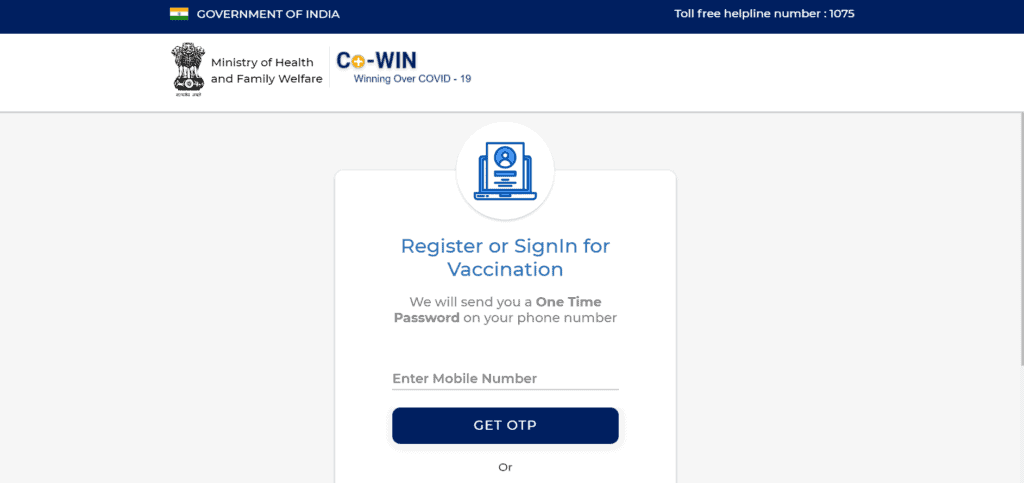
Step 3: After you’ve entered your OTP, you have to enter your details. Keep your photo id proof (Aadhar, PAN Card, Passport, Driving License, Pension Passbook, NPR Smart Card or Voter ID) handy to complete this step.
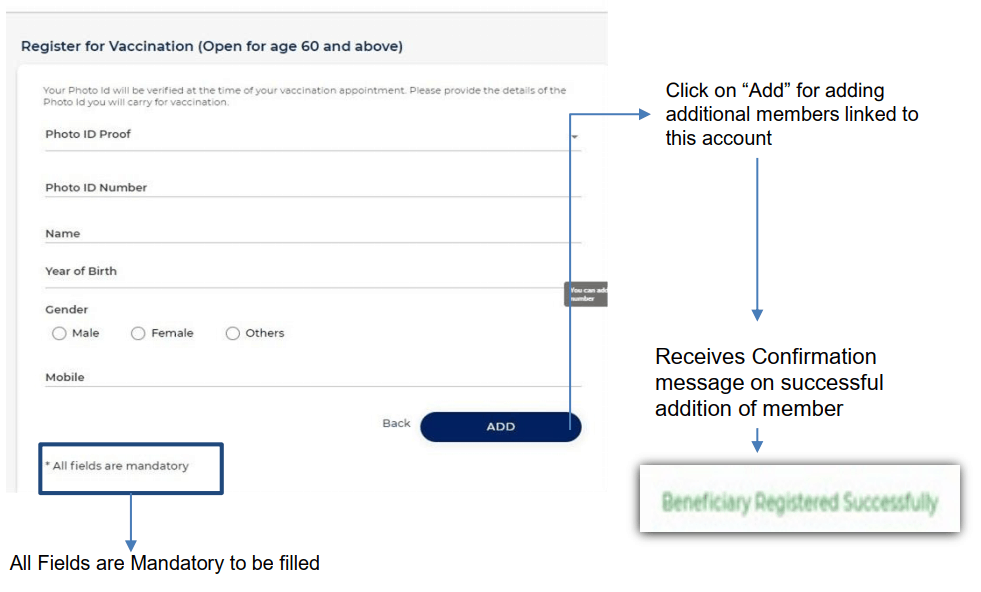
Apart from senior citizens, those above 45 years of age who have co-morbidities can also register on CoWIN. But there’s an additional step for them to access vaccination. They have to get a certificate from a doctor enlisting their comorbidities and prioritising them for vaccination.
Read more: Most Mumbaikars are unaware of the COVID-19 vaccines?
Doctor’s letter
Those with comorbidities are asked to produce a doctor’s letter at the vaccination centre. Its format is uploaded on the CoWIN website and can also be accessed here: certificate-to-identify-individuals-with-co-morbidities-that-enhance-the-risk-of-mortality-in-covid-19-disease-for-priority-vaccination.pdf (mohfw.gov.in)
The letter, where the doctor marks your particular illness from a list of 20, is mandatory to receive a vaccine. This letter must also be signed and stamped by the doctor. Citizen Matters asked the K-East (Andheri) BMC Ward war room if letters in other formats are accepted, we were told that following the prescribed format is “advisable”.
What if you cannot register?
If you’re above 60 and cannot register at the CoWIN website, BMC guidelines advise that you can approach the nearest vaccination centre and get registered at the centre itself. You can also registered at the centre if you’re over 45 years of age but you will still need to get a doctor’s letter to get vaccinated.
How to find a vaccination centre?
Visit the CoWIN website and enter your pincode under enter place/address/eLoc on the homepage. The website will show you the vaccination centres near your residence. You can also call up BMC ward war rooms and ask them for details on your nearest vaccination centres.
Currently, there are 92 vaccination centres in Mumbai, this includes 59 private hospitals and dispensaries, 25 civic-run hospitals, and eight state government-run hospitals.
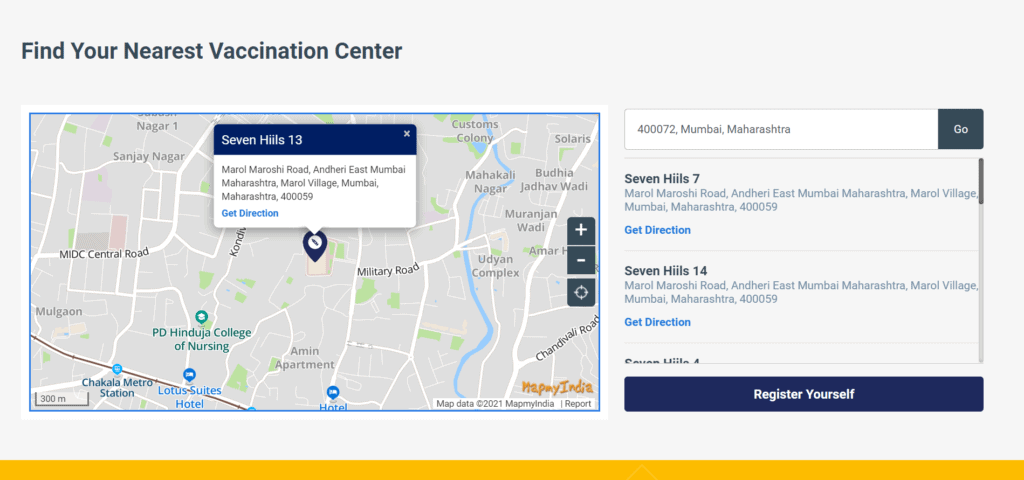

As the stock of the two vaccines, Covishield and Covaxin, is dependent on supply, you can also check which vaccination centre has which vaccine by calling the centre or the ward war room.
Read more: Vaccines are almost here. Time for a large-scale testing system, says a Mumbai team
Government vs Private centres
The vaccine is being administered for free at BMC hospitals whereas a charge of Rs 250 is applicable at private centres. Here’s a list of all the private hospitals administering the vaccine:
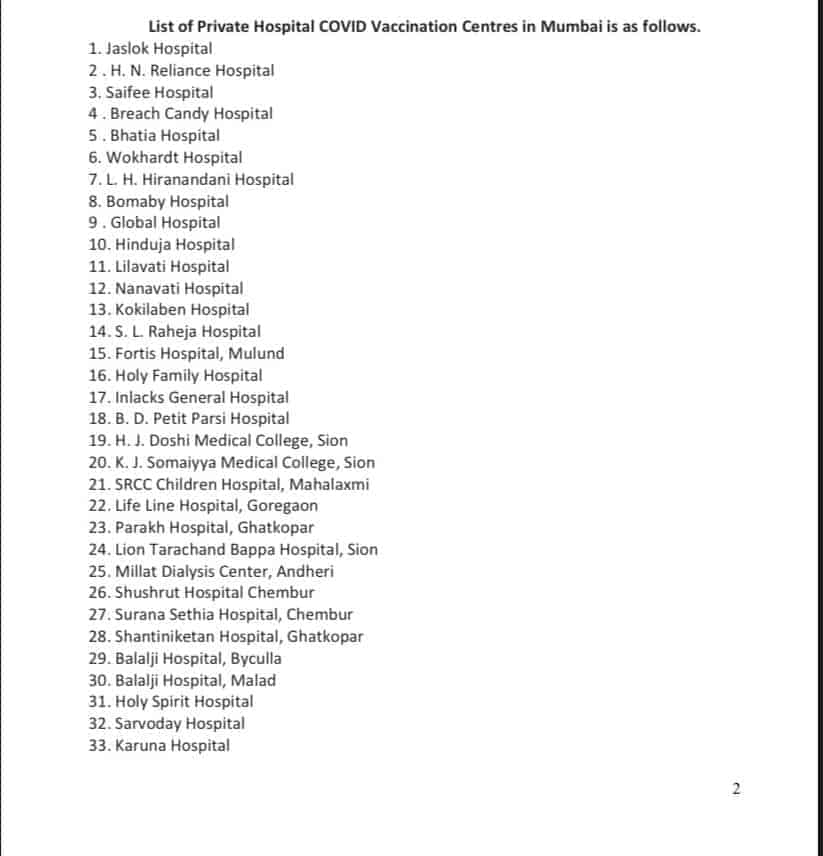
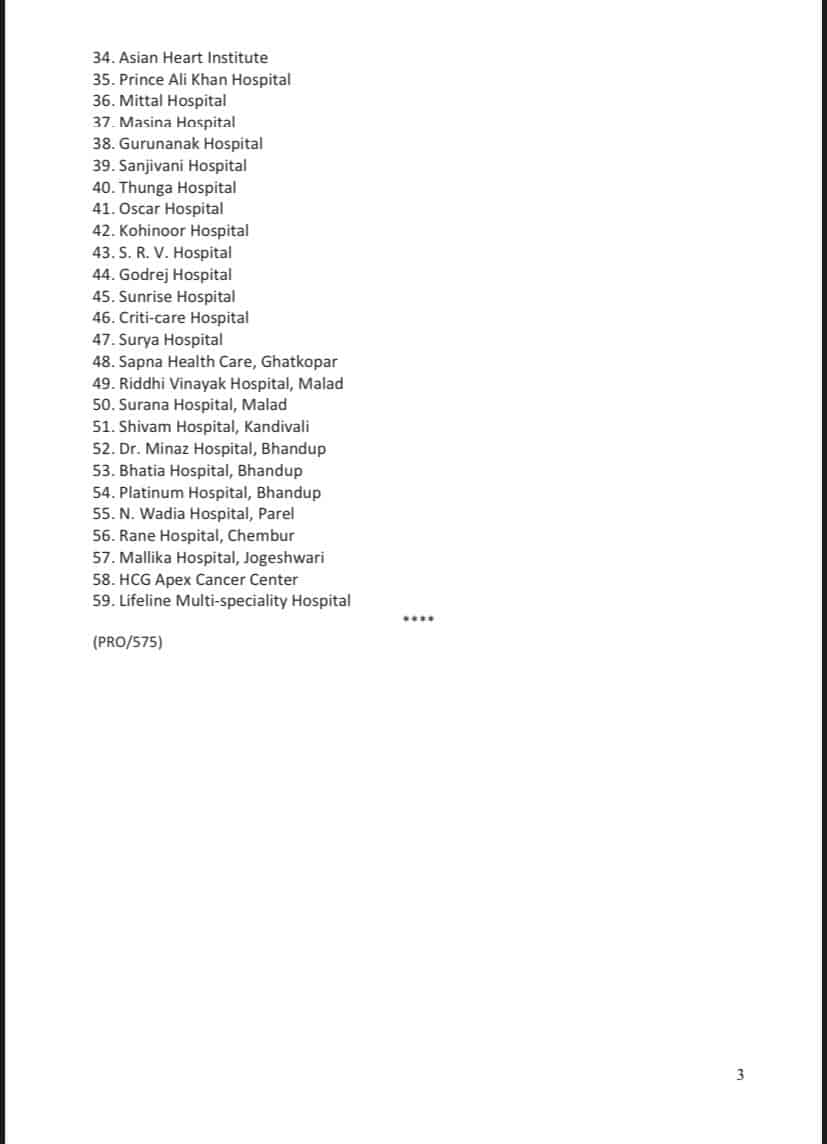
At the vaccination centre
If you have registered via CoWIN, you will be asked for your registered mobile number and photo ID proof at the centre, or you can register at the centre using your photo ID. Once you are vaccinated, your profile at CoWIN will be updated and you will receive a message to download your vaccine certificate. This is essential as the Covishield and Covaxin vaccines are given out in two doses, separated by multiple weeks.
It’s important to keep a close eye on the weblink for the certificate. If you don’t receive it, you can enquire about it at the vaccination centre. This certificate which includes details such as the name of the vaccine, batch of the vaccine, vaccination centre name, along with your personal details, will be needed while taking the second dose – currently after 28 days for Covaxin and after six but before eight weeks for Covishield.
Also read: